View current news articles, commentary, videos and more having an impact on Jewish culture, politics and religion at Rabbi Silverman's Sites to See
Join us for our Tu B'Shvat Seder
On the 15th of Shvat, we have the privilege of celebrating the holiday of Tu B’Shvat, the New Year of Trees. Traditionally, Tu B’Shvat marks the date at which the earliest blooming trees of Israel, the almond, or shkediah trees, begin their new fruit-bearing cycle, with sap beginning to rise and buds to appear. (Halacha instructs that a tree must be four years old before one can dedicate its fruits and then consume them.) The Kabbalists of Northern Israel established a “seder,” in which trees and fruits, which the rabbis associated with the Jewish people and the Land of Israel, were celebrated. As of the last century, Tu B’Shvat became connected with development and expansion of Israel’s forests and the greening of the semi-arid slopes of the Judaean Hills. Note that what is a fiscal legal holiday has been transformed into a more general celebration of nature.
Many today are of the opinion that we must broaden the significance of Tu B’Shvat beyond its current
Israel-centric scope. We surely must continue a glorification of the natural habitat of Israel. And certainly the holiday takes on even greater cogency in view of the recent arson attacks on natural conservations and farmlands in the South, with acres of land going up in smoke from the incendiary “kite” and balloon bombs flown into Israel by Hamas terrorists. But Tu B’Shvat should encompass a broader agenda.
A recent report by the UN Intergovernmental Panel on Climate Change (IPCC) and by our own Federal Government is alarming. The citizens of this planet are doing damage that will soon be irreversible, if not lessened and checked in the next decade. I used to think these warnings sounded a lot like Chicken Little. However, it appears that all of us need to understand the gravity of these reports. Oil spills and the dumping of plastic and debris in our oceans threatens our marine life. The run-off of fertilizer into our waters has resulted in brown tides and the blanching of coral reefs, which is killing off even more sea life. The carbon dioxide emissions of industrial nations (China and our United States) will raise ocean temperatures another 2 degrees by the year 2050, causing massive coastal damage due to flooding. And our Federal Government is wrestling with itself policy-wise, as many in the EPA and Trump Administration are unwilling to implement policies that should be dictated by their own scientific findings.
Rabbi Yohanan, in the Talmud, said that if the Messiah comes while you are planting a tree, you should first finish planting and then go out and greet the Messiah. This is because neither God nor the Messiah will rescue us from ourselves. In a midrash, God says to Adam in the garden “Keep it and tend it, because if you ruin it, there will be none to repair it.” Safeguarding nature is our task and our task alone. Our agricultural laws, in the book of Leviticus, stress again and again that we are tenants on God’s good earth, and we have an obligation to prevent it from exhausting itself. Let us utilize the consciousness of Tu B’Shvat to redouble our efforts on behalf of the environment, not only in our nation but in the Land of Israel and for the planet as whole. Recycle with a vengeance. Plant trees in Israel and in your back yard. Consider purchasing electric cars and solar for your homes. And, make sure to reinforce your thinking and spirit with our annual Tu B’Shvat Seder, which this year will be January 18th, immediately after services. You and your children are invited to enjoy the fruits and grains once again, and to reflect on our precious natural elements.
